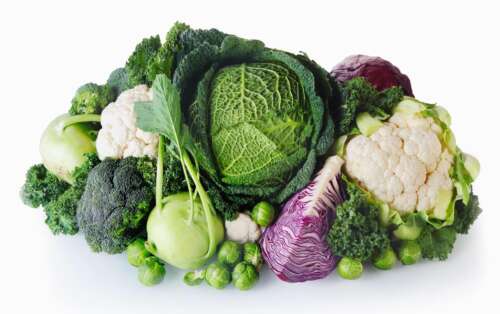
The lack of vegetable intake in the United States is something I see in my clinic on a regular basis. I hear it all the time, “I don’t like vegetables”. And while it’s ok to not “like” vegetables, it’s not ok to exclude them from your diet, because your body needs them and all the natural goodness they contain. We’re gonna look at a specific subset today, cruciferous vegetables.
Cruciferous vegetables are a group of green foods rich in a range of essential nutrients. Cruciferous vegetables are high in sulfur-containing compounds. Yes, this is what gives them their somewhat bitter taste and sometimes gassy aftermath, but flavor them well and you should have no problem. More importantly, when you include them as a regular part of your daily diet, they can help lower your rates of developing cancer and heart disease, while also helping with other health issues.
Cruciferous vegetables contain glucosinolates and research shows glucosinolates have strong anti-inflammatory and antioxidant properties, helping to protect our cells from disease-causing damage. As a group, cruciferous vegetables are also high in protein, fiber, vitamins and minerals. Together with its glucosinolates, this powerful nutrition profile offers health benefits like improved heart health, improved immunity, cancer protection and maybe even assist with weight loss.
1. Aid in Weight Loss – Because they are low in calories and high in fiber, cruciferous vegetables also help you feel fuller longer, making them a great addition to weight loss diets. On average, a serving of cruciferous vegetables has up to 20% of your daily fiber requirement. Research shows that getting about 30 grams of fiber each day can help you lose weight, lower your blood pressure and reduce obesity.
2. Improve Heart Health – Diets high in fruits and vegetables are consistently associated with lower heart disease risk. Studies show that cruciferous vegetables support this effect because their glucosinolates help reduce your LDL (bad) cholesterol. Good cholesterol levels help keep your arteries free from fatty deposits that lead to heart problems and stroke.
3. Improve Immunity – Cruciferous vegetables nutritional content is also associated with a lower risk of chronic diseases like diabetes, asthma and Alzheimer’s disease. Studies show these vegetables plant-based nutrients have antimicrobial properties that give your immune defenses a boost against sickness-causing pathogens as well.
4. Cancer Protection – The glucosinolates in cruciferous vegetables have been shown to kill cancer cells and stop tumor growth. Many observational studies show significantly reduced rates of many types of cancer in people with high cruciferous vegetable intake, including breast, lung, pancreatic, and stomach cancers.
There are more than 3,000 different cruciferous species, including arugula, broccoli, broccolini, bok choy, Brussel sprouts, cabbage, cauliflower, dandelion greens, kale, mustard greens, radishes, rutabaga, turnips and watercress. Aside from the aforementioned nutrients found in cruciferous vegetables, they are also good for getting omega-3 fatty acids, vitamin C, folic acid, iron, calcium and selenium. It is recommended that you eat at least 1.5 to 2.5 cups of cruciferous vegetables per week. Studies link three servings of vegetables a day with slower aging and lower risk of disease and you can add cruciferous varieties to your daily total to boost your intake of both macronutrients and micronutrients.
Any way you slice it, adding more cruciferous vegetables to your diet is a great way to improve your overall health. And with so many different ways to prepare them, you can have a different taste adventure every day.

